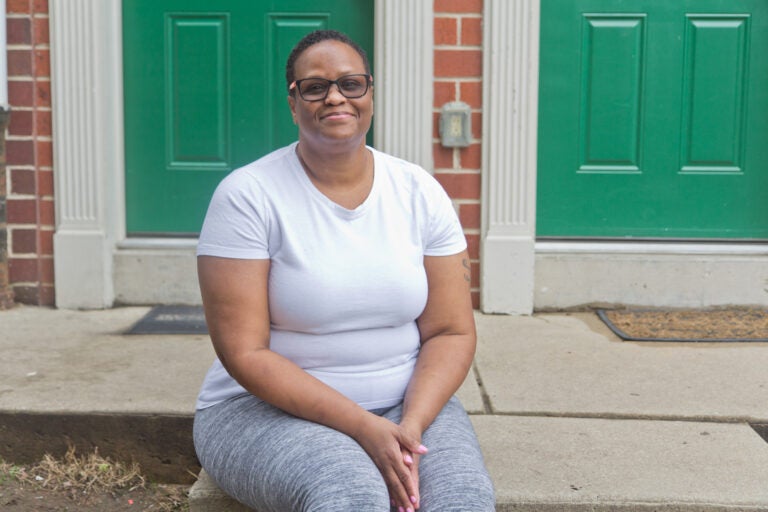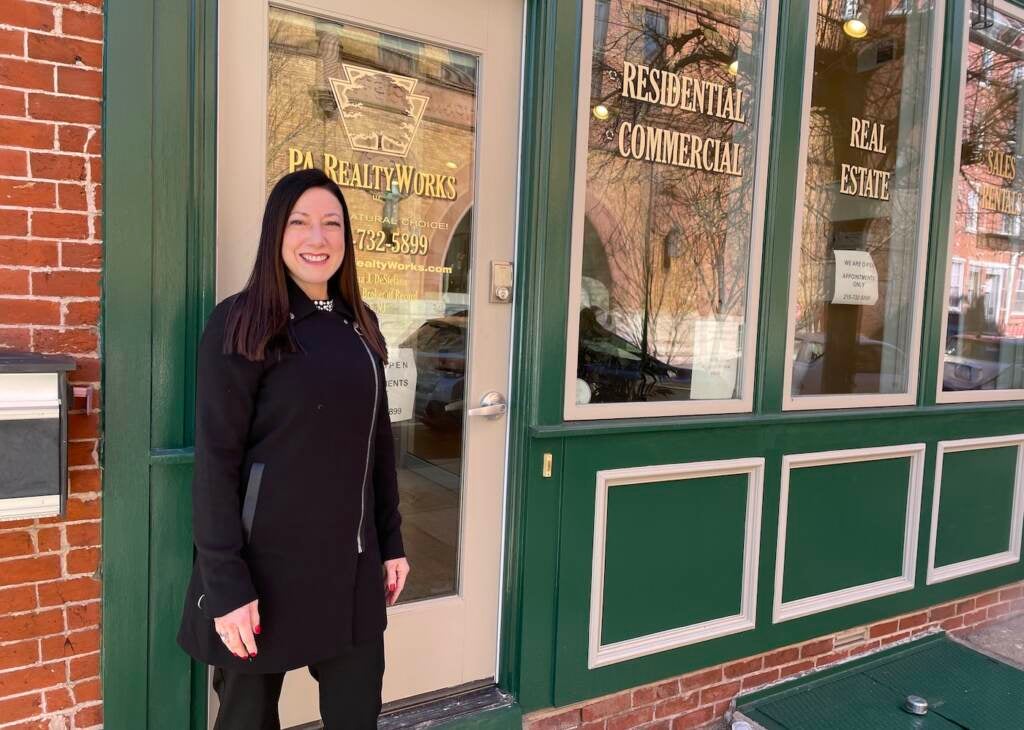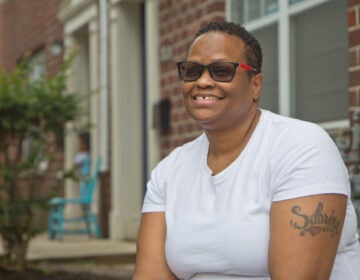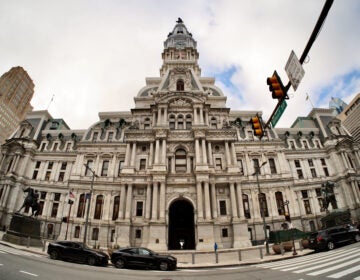Philly tourism is surging back. Hotel workers, not so fast
A Philadelphia law gives them priority when hotels are ready to rehire, but workers laid off due to COVID are taking their time and reviewing their options.

Stephannia Swain is a cook who was laid off due to the pandemic. (Kimberly Paynter/WHYY)
Last August, Stephannia Swain returned to her old job in the kitchen at the Warwick Hotel in Philadelphia, after spending 16 months without work.
“With COVID it’s been touch and go because they’re not doing as much business… but for the most part I’m getting my 40 hours,” said Swain, who has spent the majority of her life working for the same company.
In December 2020, Philadelphia City Council passed a bill that would guarantee laid-off hotel, stadium, and airport workers would have first dibs when their jobs returned. But during the pandemic, those jobs have changed, or not yet returned, and some hotels are still struggling to attract new workers.
Swain said she has seen both the business and staffing change. Two people retired from the kitchen during the pandemic and have not been replaced. With the hotel no longer offering room service, the kitchen does not need as many people. Swain cooks for event banquets and the staff cafeteria.
Swain said she expected COVID to change some things, and is happy she could return. “Just as long as I got my job back, I wasn’t expecting to have my same hours,” she said.
The pandemic drove many business changes for hotels, from cutting room cleanings to closing dining rooms. The leisure and hospitality industry in the U.S. lost 3.7 million jobs in 2020, more than any other major job category, according to the U.S. Bureau of Labor Statistics.
Tourism is now returning. Hotel occupancy in Center City Philadelphia increased by 31.3% from 2020 to 2021, according to the Mayor’s Office. While it’s still well below 2019 levels, the industry is predicted to make a full recovery in 2023.
Hotel jobs are on the rise, too. In December, restaurants and hotels led in terms of new jobs created, adding 53,000 across the country, according to the Bureau of Labor Statistics.
And unlike in other fields, the Philadelphia bill provides some context for how many people switched jobs during the pandemic, and how many returned.
“The passage of the bill preempted a lot of nasty fights that we otherwise likely would have had. By and large, the industry has followed the law as far as we know,” said Dermot Delude-Dix, a research analyst for UNITE HERE Local 274. As a cautionary tale, he pointed to a hotel in Maryland that received a Paycheck Protection Program loan but as of last year had not rehired any of its original staff.
The bills, called the “Black Workers Matter Economic Recovery Package,” explicitly aimed to protect the majority Black, Asian, and Latino hospitality workforce from being replaced by younger, lower-paid workers. In Philadelphia, that covered 12,000 people, according to numbers provided by the City Council.
In the end, many workers have returned to their former employers, according to data compiled by UNITE HERE.
“It varies by workplace but seems to correlate with the quality of the job,” said Delude-Dix. Center City hotels with higher wages saw a greater number of workers return to their old jobs, he said, with some rehiring as much as 90% of their formerly employed workforce in some capacity. Return rates were lower at the airport, said Delude-Dix, but those jobs also saw greater turnover pre-pandemic.
For the hotel industry, the desire to fill jobs as more guests return has pushed up wages, but hiring still lagged behind demand, according to the analytics group STR.
“I thought that bill was unnecessary because it’s in the best interest of the hotels to bring back their more experienced people first,” said Ed Grose, executive director of the Greater Philadelphia Hotel Association.
Grose said the hiring picture has slowly improved, but is still a challenge for some. Demand is not just for frontline workers, but also managers and chief engineers, who oversee building maintenance.
“I am aware of some hotels that are resorting to cleaning contractors because they’re unable to hire housekeepers,” said Grose. UNITE HERE has repeatedly criticized such changes, saying the reduction or outsourcing of cleaning undermines union jobs.
Pre-pandemic pay data for Philadelphia hotels shows a wide range of compensation. Starting salary for a tipped bartender ranged from $5/hour to $13.51/hour in 2019, according to industry data. For a housekeeping supervisor, the starting pay varied from $12/hour to $19.95/hour depending on location.
Some workers simply found different outlets for their skills.
Mary Mastrobuoni, 61, spent 35 years working for hotels, most recently as a concierge at a Center City hotel. Hospitality ran in her family. “My father was a bell captain and my mother was a banquet waitress, and they met and they eventually got married,” she said, after working at the same hotel.

Then came COVID-19. Mastrobuoni was one of the millions of hospitality workers laid off or furloughed in 2020. She had had a real estate license for several years already, and decided to turn her side hustle into her career.
When everything shut down, “I was thrilled that I had something else to lean on or to really utilize,” said Mastrobuoni. In 2021, she said her old employer did reach back out and offer her a position, but not the same one or the same hours she had before. She declined.
“It was nice to be asked,” said Mastrobuoni. But her real estate shares many of the qualities she liked about being a concierge. “It’s hospitality in another form,” she said.
 WHYY is one of over 20 news organizations producing Broke in Philly, a collaborative reporting project on solutions to poverty and the city’s push towards economic justice. Follow us at @BrokeInPhilly.
WHYY is one of over 20 news organizations producing Broke in Philly, a collaborative reporting project on solutions to poverty and the city’s push towards economic justice. Follow us at @BrokeInPhilly.
WHYY is your source for fact-based, in-depth journalism and information. As a nonprofit organization, we rely on financial support from readers like you. Please give today.



![CoronavirusPandemic_1024x512[1]](https://whyy.org/wp-content/uploads/2020/03/CoronavirusPandemic_1024x5121-300x150.jpg)


